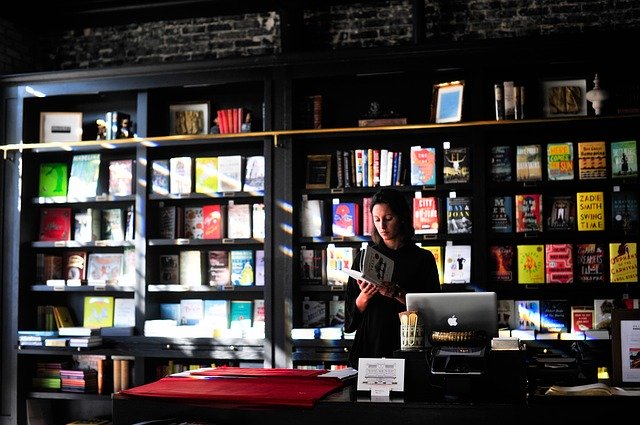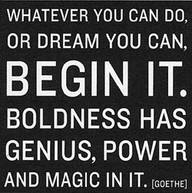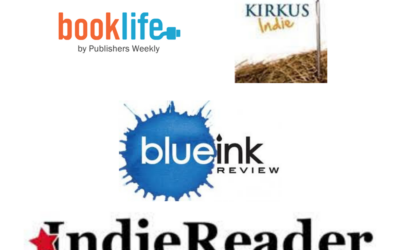
Authors and publishers can sell books directly to consumers or they can reach consumers through a series of middlemen known as resellers. There are three basic types of resellers in the book trade:
1. Retailers sell books to consumers. Typical book retailers include online bookstores like Amazon.com, retail (physical) bookstores, chain stores, and specialty stores. Some retailers do advertising, usually for bestsellers and books from big-name authors, but the author and publisher bear most of the responsibility for generating demand from consumers.
2. Distributors market books on behalf of the publishers they represent. They typically have sales reps, or at least a catalog, and actively solicit orders from libraries, bookstores and other retailers. Some distributors specialize in a particular market (like libraries) or a particular type of book. Distributors may warehouse and ship books on behalf of the publisher.
Distributors are often used by small to mid-sized publishers who do not want to maintain an in-house sales staff. Some of the larger book distributors include Independent Publishers Group, Midpoint Trade Books, and National Book Network. See this page for more information about book distributors.
3. Wholesalers (also called jobbers) usually do no marketing—they simply receive and process orders from libraries and retailers. The publisher or distributor is responsible for generating demand. However, some wholesalers offer collection development services to libraries, and some offer advertising opportunities to publishers.
Most wholesalers don’t stock a book unless it is in high demand; for lower volume titles they order from the publisher or distributor as necessary to fulfill orders. Library wholesalers often offer discounts to libraries and some provide other library services such as cataloging.
Baker & Taylor (B&T) is by far the largest library wholesaler, probably accounting for close to half of all book sales to libraries. They also fulfill orders for the Borders.com bookstore and supply retail bookstores.
Ingram Book Company dominates the wholesale business to bookstores (including Amazon.com), but is also a major supplier to libraries. Ingram does not work directly with publishers that have fewer than 10 titles in print, but books are automatically listed in their database if they are available though Ingram’s book printing division, Lightning Source. Ingram also has a distributor division called Ingram Publisher Services.
If you want to sell to retail bookstores or libraries, it’s best to have your book available through Ingram or Baker & Taylor. Many bookstores and libraries will not order directly from small and independent publishers. If you are publishing through a print-on-demand publishing company, read your contract to make sure you have distribution through a major wholesaler at standard discounts. Bookstores will also require that the books be returnable.
A trade discount is the discount from list price at which resellers purchase books from publishers. Books are typically sold directly to bookstores at 40% discount, to wholesalers at 55% discount and to distributors at 65% to 70% discount, but the discounts can vary.
For example, if a book is represented by a distributor who is getting a 65% discount, the distributor keeps 10% for their sales efforts, the wholesaler gets 15% and the retailer gets 40%, leaving 35% for the publisher. Out of the publisher’s cut comes editorial and design costs, author royalties, printing and shipping fees, promotion, overhead and profit.
It is possible to sell to wholesalers at lower discounts under certain conditions. For more details on selling through wholesalers, including contact information for the 17 largest U.S. wholesalers, see The Savvy Book Marketer’s Guide to Selling Your Book to Libraries.
Dana Lynn Smith is a book marketing coach and author of the Savvy Book Marketer Guides. For more tips, follow @BookMarketer on Twitter, visit Dana’s blog at http://www.thesavvybookmarketer.com/, and get a copy of the Top Book Marketing Tips ebook when you sign up for her free newsletter at http://www.bookmarketingnewsletter.com/.






I have been working with a company that is putting 3 of my (Christian children's) books with LSI. The account with LSI will be through them until I feel comfortable enough to handle it myself (which means a fee to the company I'm working with). The 4th book is in my possession as I have the books in boxes here and sell through Amazon Advantage and my website. My question is: Can I go directly to LSI and use their marketing they offer since my books are with them? I'm looking for ways to market beyond my 'author platform' with social networking. I'll also be approaching Christian schools in my area for 'Author Visits'.